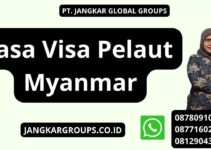Introduction
Malaysia and China are two countries that are geographically close to each other but differ greatly in terms of their political and economic systems, culture, and history. This article will compare and contrast the two countries in various aspects such as economy, politics, education, tourism, and social customs.
Economy
Malaysia and China are both classified as upper-middle-income economies by the World Bank. However, China is the second-largest economy in the world after the United States, while Malaysia is ranked 38th. China’s economy is primarily driven by export-oriented manufacturing, while Malaysia’s economy is more diversified, with contributions from manufacturing, services, and agriculture sectors.
China’s economic growth has been remarkable over the past few decades, with an average annual growth rate of 9.5% from 1979 to 2019. Malaysia, on the other hand, has experienced more moderate growth, with an average annual growth rate of 4.7% from 1971 to 2019.
Politics
China is a one-party socialist state, with the Communist Party of China (CPC) being the sole ruling party. Malaysia, on the other hand, is a federal constitutional monarchy with a parliamentary democracy. Malaysia has a multi-party system, with the United Malays National Organization (UMNO) being the dominant party in the ruling coalition.
China’s political system is characterized by tight government control and censorship of the media and the internet. Malaysia has a relatively free press and internet, although there have been occasional incidents of censorship and restrictions on freedom of speech and assembly.
Education
Both Malaysia and China place a high value on education and have made significant investments in their education systems. China has a highly centralized education system, with a strong emphasis on science and technology education. Malaysia’s education system is more decentralized, with significant autonomy given to individual states and schools.
China has some of the top universities in the world, including Tsinghua University and Peking University. Malaysia has also made significant strides in higher education, with several universities ranking highly in international rankings such as Universiti Malaya and Universiti Sains Malaysia.
Tourism
Both Malaysia and China are popular tourist destinations, although they offer different types of attractions. Malaysia is known for its tropical beaches, lush rainforests, and diverse cultural heritage. China is famous for its rich history and cultural landmarks such as the Great Wall, the Forbidden City, and the Terracotta Warriors.
China receives more tourists than Malaysia, with over 150 million international tourist arrivals in 2019 compared to Malaysia’s 26 million. However, Malaysia’s tourism industry is significant for its economy, contributing 15.9% of the country’s GDP in 2019 compared to China’s 11.1%.
Social Customs
Malaysia and China have distinct social customs that reflect their respective cultures and religions. Malaysia is a predominantly Muslim country, and Islamic customs and practices are evident in daily life. China’s dominant religion is Buddhism, and Confucianism has also been influential in shaping Chinese culture and social customs.
Malaysia’s cultural diversity is reflected in its festivals and celebrations, such as Hari Raya Aidilfitri, Chinese New Year, and Deepavali. China’s festivals are also an essential part of its cultural heritage, with the Spring Festival (Chinese New Year) being the most significant.
Conclusion
In conclusion, Malaysia and China are two countries with many differences in terms of their political and economic systems, culture, and history. However, they also share some similarities, such as a strong emphasis on education and a thriving tourism industry. Understanding these differences and similarities can provide insights into the opportunities and challenges of doing business or traveling in these countries.



